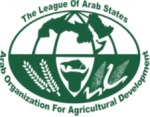Co-Organized by IFPRI and the CGIAR Research Program on Policies, Institutions, and Markets (PIM)
Developing countries responded to COVID-19 by implementing social distancing measures and limiting non-essential business operations. Agrifood systems and food supplies—although generally exempt from restrictions—have been exposed to policy disruptions and global market instability. To measure the impacts of COVID-19 on economies and food systems, IFPRI researchers worked alongside partners in several African and Asian countries to conduct economywide multiplier analysis, tracing direct and indirect spillover effects along and across supply chains. Results reveal substantial but varying levels of GDP losses during lockdowns, depending on policy design and implementation and countries’ exposure to global markets. Despite policy exemptions, impacts on food systems account for about one quarter of GDP losses on average. Income losses are felt by all segments of the population. Negative impacts persist, but gradually weaken as restrictive measures are lifted. Our results call for targeted social protection interventions in the short term, balanced with longer-term planning and investing in the economic recovery.
This IFPRI-PIM seminar will present the modeling approach and showcase results from three case studies—Nigeria, Myanmar, and Sudan. Presenters will highlight how differences in policy design, implementation, and economic structure affect the experience with COVID-19, specifically for food systems and poverty, in these countries.
For more information click here
